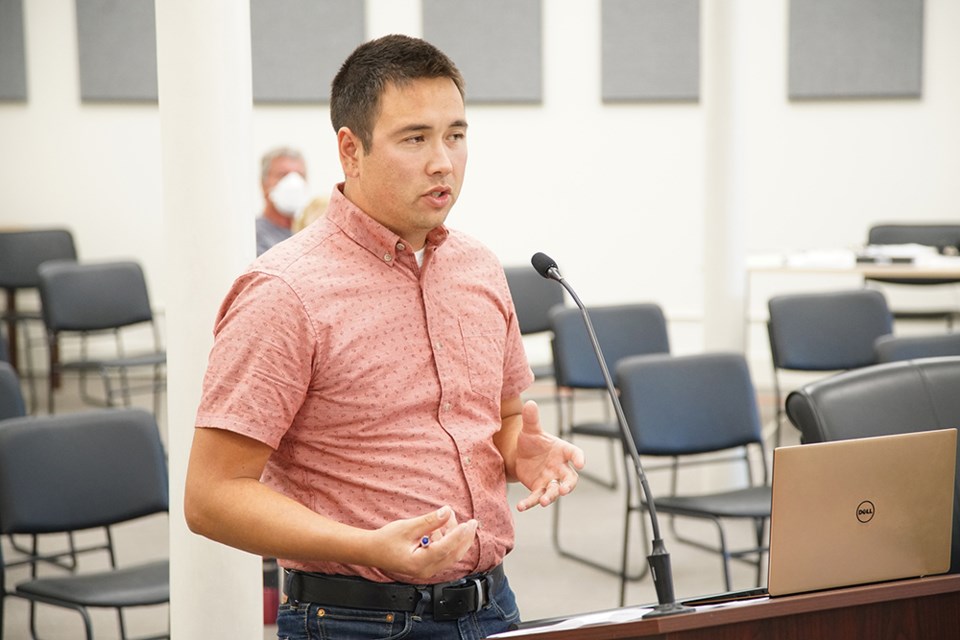City of Powell River Council will consider modifications to the permissive tax exemption policy, which grants municipal tax-free status to a number of community organizations.
At the July 22 finance committee meeting, chief financial officer Adam Langenmaier reported that for 2022, the city has a number of new applicants, with an expected request of $38,000 in new exemptions. The total for the repeat applications is expected to be $340,098, according to Langenmaier.
Last year, the total for exemptions was $377,000, which represented 1.94 per cent of the city’s total tax take. This year, the anticipated value is at nearly $422,000 which would be 2.09 per cent of the overall tax base.
“What we are seeing is the value of the permissive tax exemptions increasing at a disproportionate rate to our total taxes,” said Langenmaier. “What that means is the amount that is being exempted is growing faster than our tax base. So, the question is, what is council’s wish to do with permissive tax exemptions?”
Langenmaier said last year, the community finance advisory committee was tasked with looking at this item and reported back with a recommendation for council to consider a cap on the total value expended. He said the city is still early in the process of when the permissive tax exemption bylaw has to be adopted, with an October 31 deadline.
“We have an ample amount of time to do community engagement and outreach if there is going to be an appetite for significant change,” said Langenmaier. “I’d like to see direction to bring back the bylaw to the next available council meeting with direction from this committee of what you’d like to see.”
Councillor Cindy Elliott said the requests for permissive tax exemptions will continue to rise and a cap is a good idea. She said it is also good to consider eligibility requirements so the city is focusing on areas most beneficial to the community. She added, for example, if an organization has land that is not actually being used, perhaps that’s not where the city wants tax exemptions to be applied.
“I think we want to develop some criteria around that so we are not giving out permissive tax exemptions to areas that are not particularly beneficial to the community,” said Elliott.
Mayor asks for comparisons
Mayor Dave Formosa said he would like to see comparisons to other communities of similar size to Powell River, of what the average percentages are for permissive tax exemptions. He said cuts could be applied equally so everyone takes the hit together.
Langenmaier said he could do some research into what communities of similar size are doing.
Councillor CaroleAnn Leishman said she believes the city should be setting some criteria and a scoring for what an organization brings to the community to identify which organizations should be getting 100 per cent permissive tax exemptions and which should be getting a percentage. With organizations holding vacant land, Leishman said the city should look into not giving an exemption for that property.
Leishman said a cap of the city’s total tax base is a good suggestion but she didn’t think the city should be cutting back on exemptions for organizations that really rely on them.
“It would do harm to some organizations that are providing a valuable service to our community, so we need to give criteria to those ones and make sure we’re supporting the organizations that need it,” said Leishman.
Finance committee chair councillor George Doubt said he echoes what Elliott mentioned.
“This will become an increasingly larger tax burden on all of the residents of the city if we don’t make some changes,” said Doubt. “The forecast is to be about 2.5 per cent of tax revenue going to permissive tax exemptions, which is pretty significant for all of the other taxpayers. It’s a contribution to support worthwhile organizations but how much contribution do taxpayers want to make to that?”
Chair sums up suggestions
Doubt said there were three suggestions. One is that the city continues approving all of the applications to 100 per cent, and not putting a cap on exemptions. The second is having a permissive tax exemption based on a service category, such as religious, sports, recreation or community service organizations. The third is an exemption based on a service category and a cap, which Doubt said is the fairest.
“It will cap the amount of tax money that will be given out for tax exemptions and then it gives different levels of tax exemptions for different categories of groups,” added Doubt. “We could spend a lot of time talking about the details but my opinion is that putting a cap on the total amount of permissive tax exemptions is a wise thing to do, and giving different levels of tax exemption for different categories of service is the way to go.”
Councillor Maggie Hathaway said she believes the city needs to put a cap on the exemptions; she also likes the idea of a needs test to qualify.
Doubt said he was looking for unanimous consent to refer the CFO’s report back to Langenmaier for a report to the finance committee in August on considerations for preparing a permissive tax exemption bylaw based on a cap and a service category, taking into account financial needs that applicants may have. The finance committee granted Doubt’s request.




